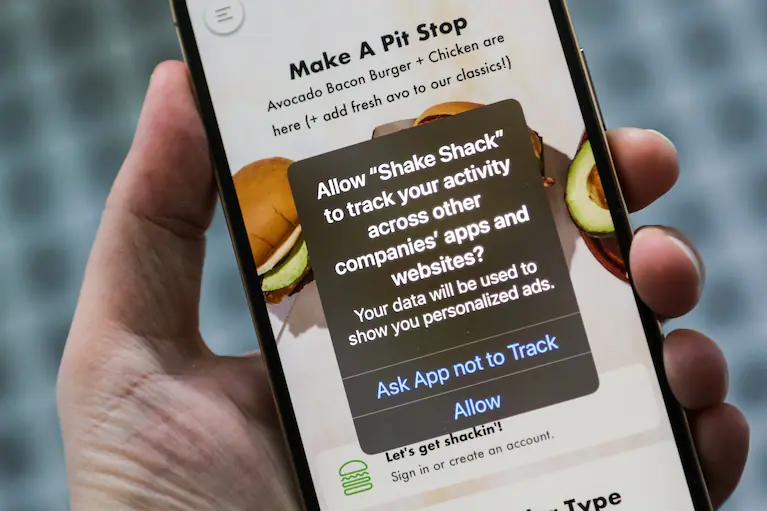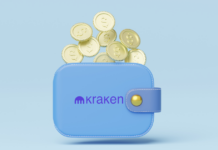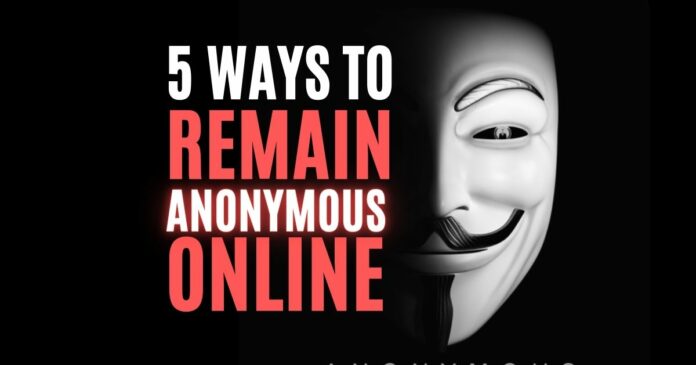If you hold cryptocurrencies in your wallet or exchange, you’d want to continue reading. Indeed, security is of utmost importance in today’s cyber world. Crypto hacks and scams are commonplace. From the average Joe to large companies, no one is truly safe from hackers and scammers.
But, aside from securing your crypto wallet, what else can you do? Today, we look at some easy steps to remain anonymous online.
Introduction
Today’s hackers and scammers look for your personal information. These include emails, phone numbers, login IDs, and so forth. With these data, they’ll look “realistic” when they make their move against you.
Blockchain Bridges Pose a New Risk to Blockchain Security!
According to the stats, the amount of crypto breaches has reportedly upsurged
This year has witnessed a high rate of persistent #hacks against crypto projects which experts attribute to weak points in blockchain bridges pic.twitter.com/bCoOMLF7Cr
— Edmond 🇺🇬 💜 (@Edmond_Uptrennd) August 12, 2022
But, what do I mean by that? Let’s imagine the scenario below:
- Scenario #1: You receive an unknown call from a scammer claiming that they’re from your bank. They request you provide your banking PIN number. But, they’re unable to confirm your details. With this, you can easily tell it’s a scam.
- Scenario #2: You receive the same unknown call as Scenario #1. They request you to verify your banking PIN number. They’re able to confirm your name, address, bank account number, and email. Now, they seem to be from the bank itself. Suddenly, they appear trustworthy. That’s it. You’re now vulnerable to their scam.
Of course, the above scenarios are just a couple of examples. In the crypto world, there’re many ways to rob you of your precious coins. The point to be made here is this. Many of these scams are able to occur because your personal information was compromised.
Steps To Remain Anonymous Online
So, how can we, as retail crypto investors, protect ourselves from such bad actors? The easiest way would be to remain anonymous. In simple terms, this means that you’re free to do what you like, without exposing your identity online.
This leads us to the next question. How can we remain anonymous easily? Fret not! I reveal some actionable steps below which you can follow.
1. Don’t Post Personal Identifiable Information (PII)
The first one seems like a no-brainer. Yet, many people commit this mistake. You should not share any of your PII online. Such PII would include your:
- Physical address.
- Social security number or Identification number.
- Phone number.
- Email addresses and so forth.
When you post a photo of your COVID-19 vaccination card on social media, you are giving away your personal, identifiable information.
So yeah… Don't…https://t.co/pdAT5pVWDR— PolarisBlurs ➰ Trish ➰ (@PolarisBlurs) February 4, 2021
Examples of some don’t’s which people could be guilty of:
- Creating a Facebook post with your address for an invitation to a party.
- Sharing snapshots of your bills (which contain your PII details) online.
The above are honey pots for hackers to steal your PII. Now, speaking of social media, this brings us to our next point.
2. Avoid Using Social Media
This could be a tall order for some of us. In this generation, many are obsessed with social media. Facebook, Instagram, Twitter, and Tik Tok dominate people’s attention spans. However, did you also know that posting online could cause you to fall victim to identity theft?
A weak password is a key for hackers, so avoid using weak passwords. Protect all your social media accounts by setting a strong and different password for each social media account. Remember, strong passwords can save you from many online traps. #CyberSafety pic.twitter.com/8R0N2WvnFg
— Ministry of Jal Shakti 🇮🇳 #AmritMahotsav (@MoJSDoWRRDGR) August 3, 2022
Wait! That’s not all! Have you heard of this saying – “If you are not paying for the product, then you are the product.”? Social media is free to us for a reason. Indeed, social media companies are selling our attention spans to online advertisers. In the midst of these, social media companies are collecting our data! Hence, by avoiding social media, you’re able to remain anonymous online.
3. Check App Permissions
Recently, have you noticed that whenever you install an app, the above screenshot pops up? Well, that’s your newly installed app, asking for your permission to track you. To remain anonymous online, you’ve got to tap the “Ask app not to track” button.

In addition, this article also has a handy guide on how to toggle the above function on your phone. This allows you to set the “Ask app not to track” setting for all your apps on your phone right now. Now that’s useful!
4. Use Ad Blockers
Ad blockers are apps that remove or alter advertising content online. This has 2 benefits:
- It blocks out ads on your phone.
- It reduces loading times for your web pages.
There’re a few ways to go about this. You could install an ad blocker like Adblock on your device. You could also choose to use the Brave browser. Brave focuses on protecting users’ privacy. It also has built-in ad-blocking features. To add icing on the cake, they reward you with $BAT tokens when you view ads that you like while browsing.
The utility tokens will survive. LFG $BAT with it's privacy-first @Brave browser, Search engine, Wallet, Ad blocker, VPN, Ads rewards, Talk (like Zoom) etc. and with more than 55.5M monthly users. #SwitchToBrave https://t.co/uD73UX2dqD
— Brave & BAT News NL unofficial account ⟁🦇🦁 (@NetherlandsBat) May 10, 2022
By using the above software, you’re able to remain anonymous online easily. All the while not affecting your online browsing experience.
5. Use Anonymous Cryptocurrency
Lastly, if you’re an avid crypto user, this step is for you! If you’re worried about others tracking your online transactions, fret not! You can choose to use these privacy-focused blockchain networks to remain anonymous online:
Congratulations on a successful network upgrade! 🎉 #Monero is now more private and efficient with ringsize 16, Bulletproofs+, and view tags!
Make sure your node/wallet is updated to continue using Monero.
Privacy and fungibility matter, and it’s exciting to keep improving!
— Monero (XMR) (@monero) August 13, 2022
Conclusion
We hope you’ve enjoyed our guide above on how to remain anonymous online! This was written in mind that you could take easy steps to protect your anonymity. Of course, this is just the tip of the iceberg. There’re many other steps you could take to further preserve your privacy. If you’d like to find out more, you can refer to this article for more information.
As crypto investors, protecting your information is as good as protecting your coins. Remember to practice the above steps and you’ll reduce your risks of losing your crypto!
⬆️ For more cryptocurrency news, check out the Altcoin Buzz YouTube channel.
⬆️ Check out our most up-to-date research, NFT and Metaverse buy, and how to protect your portfolio in this market by checking out our Altcoin Buzz Access group, which for a limited time, is FREE. Try it today.





























Private Browser can protect you from your personal information being stolen. Therefore, I use a browser from the UtopiaP2P ecosystem that allows me to quickly and privately visit any site, even one that is not available in my geolocation. I think privacy is very important these days.